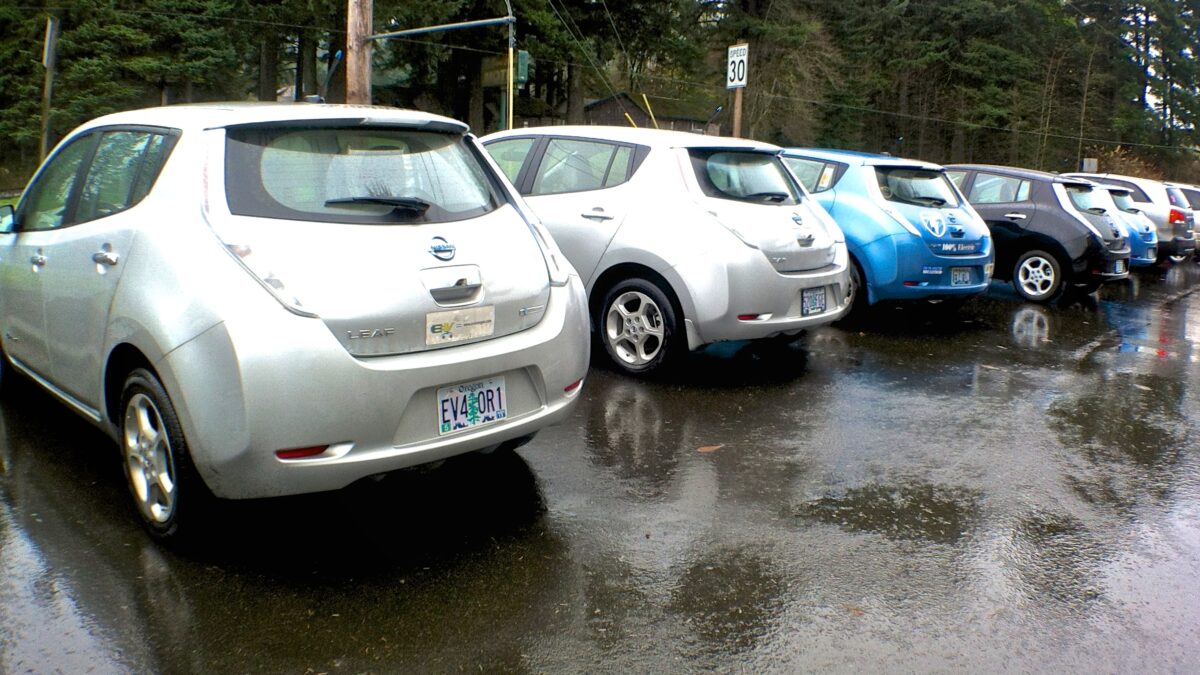NPR wants to save the planet, and in case a recent study was TL;DR for their tweeps, NPR summarized the findings.
Study lists 4 high-impact ways to cut CO2 emissions:
-have fewer kids
-go carless
-avoid air travel
-go vegetarianhttps://t.co/gvRMqqgKUn— NPR (@NPR) July 19, 2017
In their article, we learn there are reportedly four ways to go green most effectively:
By the numbers, any of these lifestyle changes drastically reduces carbon emissions compared to more common practices like recycling, using energy-efficient light bulbs and line-drying clothes.
▪ having one fewer child (an average for developed countries of 58.6 metric ton CO2-equivalent (tCO2e) emission reductions per year;
▪ living car-free (2.4 tCO2e saved per year);
▪ avoiding airplane travel (1.6 tCO2e saved per round trip trans-Atlantic flight); and
▪ eating a plant-based diet (0.8 tCO2e saved per year).
Of course, for those of us who love babies, this list might be off-putting. So, if you’re interested in being green — while also being fruitful and multiplying, and reversing our record low birth rate — I hereby submit a list to supplement the last three aforementioned ideas. These actions seem like a preferable, and more reasonable, way to help save the planet for our beloved children.
1. Encourage Your Locale to Adjust Zoning
The more we can build upward, the denser the community. The more you can walk, the lighter your carbon footprint will be, and as an added bonus, the less inequality you might see all around you.
2. Support Accountable Public Transit
Tell your elected officials you want accountable public transit for the same reason. The better your local bus and subway system works, the more likely it is that you and others can use it to commute to work and leisure outings. Ahem, Metro.
3. Whenever Possible, Carpool
4. Buy a Home Close to Your Errands
If you’re buying a home, shrink your world: buy close to the places you visit most often. Also consider buying a smaller home than you might have, so there’s less to heat, cool, and light. According to 2015 data from the Census Bureau, “The median size of a new single-family house was 2,467 square feet last year, the biggest on record . . . With all that floor space, homes are 61% larger than the median from 40 years earlier.” That’s a big jump, especially considering American families are declining in size.
5. Work and School At Home
Stay home. Work from home, or homeschool your children. The less you need to run around your metro area, the gentler you are on the Earth.
6. Unplug One Day a Week
Save electricity while you let your various devices lay fallow. Heck, you could take a full page from Shabbat observance and ditch your car that day, too.
7. Teleconference Instead of Flying to Meetings
Rather than flying to meetings, consider teleconferencing. Perhaps the Davos crowd could take the lead and even meet face-to-face every other year, or at least ride-share on their private jets.
8. Vacation Closer to Home
Instead of summering halfway around the world, find some place within a short drive of your home to take the family this season.
9. Plant Trees
They’re like an optimistic antidote to increases in carbon dioxide. They’ll also improve your view.
10. Eat and Buy Local
Eat locally grown food. Buy produce found at local farmers’ markets. That reduces carbon and lets you support small, family-owned businesses. Or, if you have the space, consider planting your own garden.
11. Have Another Baby
Maybe one of your children will be the genius who solves all of our seemingly intractable problems. It’d be a true shame not to meet that munchkin.









